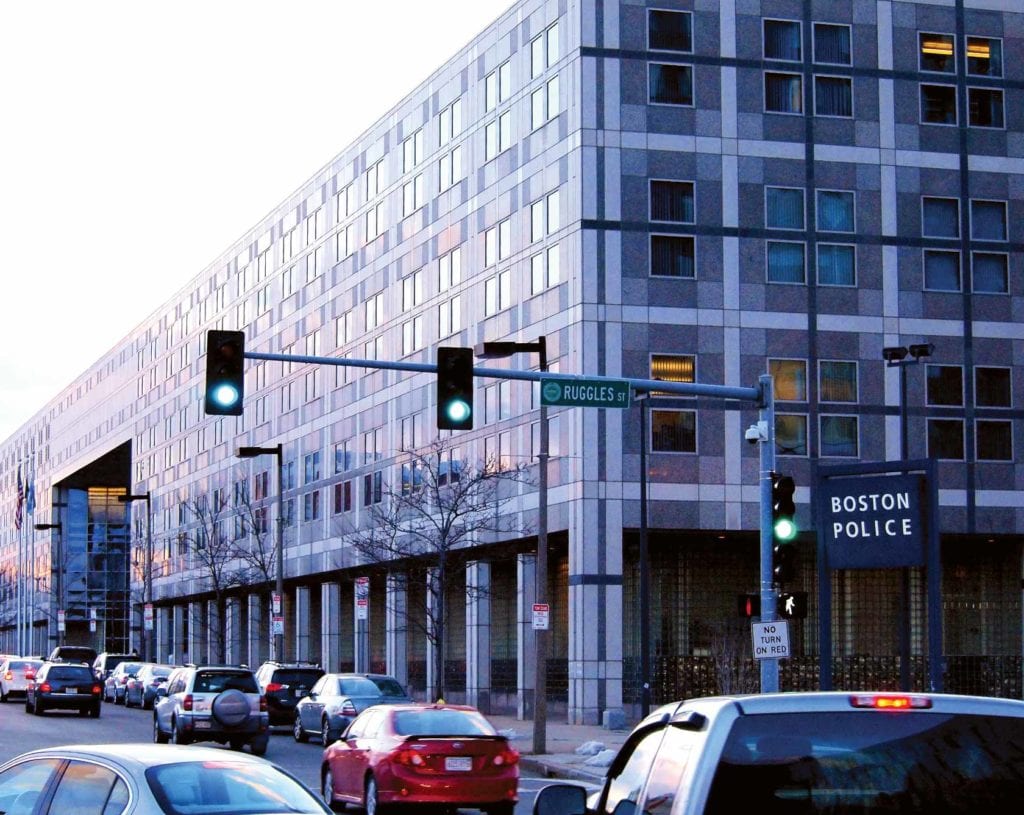
In 1999 the city began contracting with a hair-testing firm to determine whether Boston Police Department officers were using drugs. Twenty years later, the city is entangled in two sets of lawsuits: one is with black officers who say the hair test is discriminatory and the other with the Acton-based Psychemedics Corporation, the firm that to this day administers the tests on the city’s behalf.
After the city sought to recoup legal fees from Psychemedics, the corporation filed a lawsuit in Suffolk Superior Court in 2017 seeking a judgement against the city.
The emergence of the Psychemedics suit requires the city to fight a war on two fronts — on the one hand arguing that the Psychemedics test provided sound evidence that the black officers had used cocaine, and on the other arguing that the firm should be liable for the officers’ judgments against the city.
A controversial test
Before the police began using Psychemedics Corporation’s hair test to determine whether police officers used drugs, the department relied on annual urine tests. While urine tests are effective at determining whether a test subject has used marijuana within an 11-week window, the chemical markers for cocaine are undetectable after as few as four days. Chemical markers for other drugs such as heroin, codeine, methamphetamine and morphine disappear from urine after just two days.
Psychemedics claims that by testing a length of hair, it can detect traces of drugs ingested for as long as the hair has been growing. The test’s detractors, including the fired black police officers who tested positive for cocaine, say the test fails to screen out environmental exposure to cocaine, traces of which can be found on U.S. currency and in places exposed to the drug, including crime scenes.
Psychemedics submits hair samples to multiple washes to eliminate environmental contamination. But because African Americans’ hair is more porous than that of whites and because blacks are more likely to use oils in their hair, many say blacks are more prone to false positives stemming from environmental contamination.
In the first seven years of hair testing, black officers tested positive for cocaine at a rate of 1.3 percent, while white officers tested positive at just 0.3 percent. In 2006, 71 percent of positive results were generated by tests of African American officers.
In 2007, seven black officers who tested positive for cocaine filed a lawsuit against the city challenging its use of the hair test. Although the department tested for cocaine, opiates, marijuana, PCP and amphetamines, the only drug for which any of the seven tested positive was cocaine.
Under the BPD policy, officers who test positive for drug use must admit to using drugs, undergo a 45-day unpaid suspension and submit to random drug tests. Those who refuse to admit to using drugs are fired.
The seven black officers who originally sued Psychemedics Corporation in Suffolk Superior Court allege that the test is inaccurate and produced false positives for people with African American hair types.
In the ensuing years, the number of plaintiffs grew to 10, and while the Civil Service Commission found in favor of six of the officers and appeals court justices have upheld that ruling, City of Boston attorneys have repeatedly appealed those decisions, running up a legal tab well into the millions of dollars.
Does the test work?
Scientists across the country have cast doubt on the efficacy of hair testing. As early as 2008, the federal Department of Health and Human Services backed away from the use of hair testing as an alternative to urine testing, noting, “[W]ith regard to the use of alternative specimens including hair… significant issues have been raised by Federal agencies during the review process which require further examination, and may require additional study and analysis.”
In its 2017 lawsuit, Psychemedics Corporation is seeking to block the City of Boston from holding it liable for any damages stemming from the lawsuits that claim officers were fired due to false positives.
Psychemedics Corporation, while insisting that their test proves drugs were ingested, says in its lawsuit against the city that the BPD uses the test in conjunction with other factors, including a review by a medical review officer, who “is responsible for reaching out to the [police] officer and ascertaining whether there was any alternative explanation for the positive test results.”
While Psychemedics Corporation appears to be distancing itself from its claims that its test is infallible, attorneys for BPD insist that the company has consistently stood by the results of the test.
“Psychemedics has repeatedly and consistently represented to the City and the BPD that such a result indicates the ingestion of cocaine and that there is no alternative explanation for a positive cocaine test result by a BPD officer,” reads the answer city attorneys filed Feb. 20 in response to the firm’s lawsuit.
What’s next?
While the city continues its appeal of a 2016 court ruling against the firing of six of the ten officers who have sued and simultaneously its battle with Psychemedics Corporation over the efficacy of the firm’s hair test, Psychemedics notes in its suit that the city is still using the test.
“Indeed, Defendants continue to purchase and employ Psychemedics’ hair tests, and just recently reiterated in federal court filings the ‘the hair drug test is accurate and reliable.’”
A spokeswoman for the city has not yet responded to a request for comment on this article.
Lawyers for Civil Rights Executive Director Ivan Espinoza-Madrigal, whose nonprofit is representing the black plaintiffs in their lawsuit against the city, has repeatedly called on the city to drop its use of the controversial test.
“We have repeatedly and unequivocally asserted that the hair test is scientifically flawed and discriminatory,” he said. “Leading experts have explained that the hair test cannot meaningfully distinguish between environmental contamination and ingestion, particularly in hair that is common to many African Americans. Nevertheless, the City of Boston and BPD have refused to address this problem. This harms Boston’s finest, particularly African American officers who are already significantly underrepresented in our police force.”






